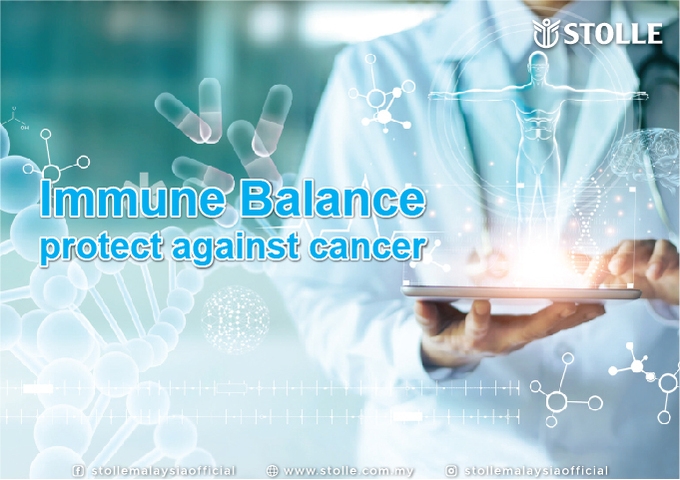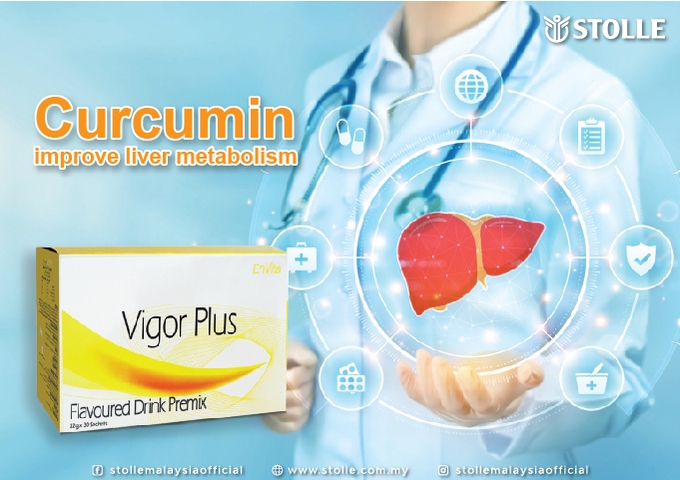Do you know what our immune system is doing? The immune system is the first line of defense in our body, its main task is to identify and resist invading pathogens such as bacteria, viruses, and other microorganisms, as well as abnormal cells like cancer cells. The role of the immune system can be likened to a highly complex network, consisting of white blood cells, antibodies, the lymphatic system, and other components that work together to ensure that our body remains free from diseases. The Importance of Immunity: Distinguishing Friend from Foe: It distinguishes between normal cells and pathogens. Disease Resistance: The immune system helps to prevent the spread of pathogens within the body, reducing the severity of diseases. Surveillance of Normal Cells: The immune system identifies when normal cells show signs of degeneration or the potential to become cancerous and defend against them. Wound Healing: The immune system plays a role in the wound healing process, aiding in our recovery. However, many factors in our lives lead to immune imbalances: (i) when it's too weak, we become susceptible to infections, (ii) when it's too strong, we may experience allergies and autoimmune diseases. Therefore, maintaining an immune balance is crucial. In our daily lives, we can maintain immune balance through the following methods: Ways to Maintain Immune Balance: Consuming an adequate amount of vitamins, minerals, and antioxidants enhances the immune system. Eating fruits, vegetables, whole grains, healthy fats, and protein-rich foods contributes to improved immunity. Regular physical exercise can boost immune system function. However, be cautious, as excessive exercise may have the opposite effect and weaken immunity. Sleep is a critical time for the body to recover and the immune system to repair itself. Aim for 7-9 hours of sleep each night. Long-term stress can lower the efficiency of the immune system. Managing stress during stressful periods through practices such as drinking Stolle ImmNuPro, meditation, yoga, or deep breathing exercises is beneficial for immune health. Quitting smoking and limiting alcohol intake are essential for immune health. Vaccinations can help the immune system better cope with diseases. Stolle ImmNuPlus: Rich in milk nutrients and patented immunonutrients, it directly supports the immune system, reduces infections, activates immunity, achieves immune balance, and keeps disease threats at bay. Immunity is the body's best doctor, a viewpoint supported by extensive research and data. By adopting a healthy lifestyle, including diet, exercise, adequate sleep, and stress management, you can enhance the functioning of your immune system, improving your resistance to various pathogens. Therefore, to pursue a healthy life, the primary task is to focus on and cultivate a balanced immune system.
more


The human body has a natural defense mechanism known as the immune system. Its main functions include identifying pathogens attempting to enter the body, initiating defense mechanisms to prevent foreign invasions, and learning how to combat these invaders to prevent diseases and maintain a healthy balance within the body. When this balance is disrupted, the risk of disease greatly increases, and cancer, in particular, is closely related to immune imbalance. Cancer is a collective term for numerous diseases characterized by uncontrolled growth of abnormal cells. These abnormal cells divide uncontrollably, damaging normal body tissues, or spreading to distant areas through the bloodstream or lymphatic system. Cancer has also become one of the top three killers globally. Extensive scientific research has demonstrated the crucial role of immune balance in cancer prevention. The immune system plays a key role in preventing and controlling cancer. This is because: 1. Immune System's Recognition and Clearance of Cancer Cells: The immune system can identify and attack abnormal cells. Cancer often arises from mutations in certain cells within the body, causing them to lose normal growth and differentiation control. A healthy immune system can recognize these abnormal cells and eliminate them through various immune mechanisms. Research has shown that precancerous abnormal cells may exist in everyone's body. However, when the immune system maintains balance and functions effectively, these abnormal cells are typically cleared in a timely manner, preventing them from developing into cancer. 2. Breakthroughs in Immunotherapy: Immunotherapy is an emerging cancer treatment that harnesses the immune system to target cancer cells. Some immunotherapy drugs have achieved remarkable efficacy in various types of cancer. Data shows that immunotherapy can significantly prolong the survival of certain patients. This indicates that immune regulation can combat cancer, providing key evidence for immune balance. 3. The Relationship Between Inflammation and Cancer: Chronic inflammation is closely linked to the development of cancer. Prolonged inflammation can impair the immune system, reducing its ability to recognize and clear cancer cells. Maintaining immune balance helps alleviate chronic inflammation, thus reducing the risk of cancer. Data suggests that a healthy lifestyle and inflammation management can maintain immune system balance. So, how can we maintain immune balance? With over 200 patents worldwide, more than 20 scientific validations, and over 60 years of continuous improvement through scientific research, Stolle ImmuPlus is proven to be effective. Gain Plus Milk Powder is rich in milk nutrients and patented immune nutrients (26 specific antibodies and anti-inflammatory factors), which directly support the immune system, activate immunity and achieve immune balance. Therefore, Stolle ImmuPlus is unquestionably your best partner in maintaining immune balance. In conclusion, immune balance plays a crucial role in cancer prevention. By strengthening the immune system's function, timely clearing abnormal cells, vaccination, exploring immunotherapy, and managing chronic inflammation, we can reduce the incidence of cancer and improve the quality of life. Immune balance is not only key to cancer prevention but also to a healthy and long life.
more
The human immune system is a complex and intricate mechanism designed to protect us from external pathogens such as viruses and bacteria. Immune balance is a stable state of the immune system—immune cells fight against external threats when necessary and stop attacking when not needed to prevent excessive inflammation. When the immune system loses balance, immune cells may attack normal tissues, leading to autoimmune diseases. Vice versa, if the immune system is unable to effectively respond to external threats, it may lead to infections and inflammation. Chronic inflammation is often a result of immune imbalance. In a state of chronic inflammation, immune cells continuously release inflammatory mediators, causing body tissues to be exposed to an inflammatory environment for a prolonged period. This not only damages the affected tissues' functions but also increases the risk of chronic diseases such as cardiovascular diseases, diabetes, and tumors. Thus, maintaining an immune balance is crucial for preventing chronic inflammation. Chronic inflammation can be caused by diet, lifestyle habits, and the environment. Currently, there is no specific medication for chronic inflammation, but adopting healthy dietary habits and choosing anti-inflammatory foods, including fish, fresh fruits and vegetables, nuts, vegetables, and healthy fats, can help prevent chronic inflammation. Stolle ImmuNuPlus will be your best-preferred product for anti-inflammatory support. Over 60 years of research, more than 20 clinical publications, and recognition with 200 patents, along with international quality awards. Patented active factors such as Specific IgG and IgA, anti-inflammatory factors, macrophage activation factors, etc., help balance immunity and directly support the immune system. Also offers benefits for maintaining the digestive system and stabilizing cardiovascular health. Added exclusive Stolle Milk Protein Concentrate (MPC), 1.5 times stronger upgraded protection. Multiple health benefits to meet the different needs of all ages, fulfilling the health needs of the entire family in one go. With numerous patents and clinical publications, Stolle ImmNuPlus is the best-preferred choice for your entire family's health. A simple cup of breakfast daily can balance immunity, maintain digestive system health, stabilize cardiovascular health, and support overall well-being. Have you had your Stolle today?
more
Curcumin: Awakening the Metabolic Power of the Liver! The liver, often referred to as the body's chemical factory and metabolic hub undertakes over 500 functions, including protein synthesis, hormone regulation, and detoxification. However, the modern lifestyle with its unhealthy diets, environmental pollutants, and life stresses can lead to an imbalance in liver metabolism, giving rise to an array of health issues. In this intricate web of metabolic regulation, curcumin emerges as a remarkable player, enhancing liver metabolism and infusing the body with a surge of energy. Derived from the rhizomes of turmeric, curcumin has been a staple in Asian traditional medicine for thousands of years. In recent times, scientific research has unveiled an array of health benefits associated with curcumin, one of which is its positive impact on liver metabolism. Data indicates that curcumin can promote liver metabolism through various pathways, laying a strong foundation for overall health. Antioxidant Benefits Oxidation is a constant process within the body, but excessive free radicals can result in oxidative stress which damages cells and tissues. Curcumin, a potent antioxidant, could neutralize free radicals, aiding in reducing oxidative stress on the liver and maintaining cellular structure and function. Fat Metabolism and Liver Health Accumulation of fat within the liver can lead to fatty liver disease, and curcumin can promote fat breakdown and oxidation by affecting the activity of key enzymes. This can help reduce fat deposition in the liver. Anti-inflammation properties Chronic inflammation is closely tied to the development of liver diseases. Renowned for its anti-inflammatory prowess, curcumin can inhibit the release of inflammatory factors, reducing the intensity of the inflammatory response. This not only helps lower inflammation levels but also mitigates inflammatory damage to the liver, enhancing metabolic activity. Preventing liver inflammation can prevent up to 80% of liver cancer. Protecting your liver early can effectively reduce the incidence of liver cancer. In summary, curcumin serves as a golden catalyst for liver metabolism, playing a pivotal role. Through pathways such as antioxidation, anti-inflammation, regulation of lipid metabolism, and improved insulin sensitivity, curcumin infuses the liver with renewed Vigor, promoting balanced and coordinated metabolism. In the contemporary world, incorporating curcumin is akin to igniting a metabolic beacon for the liver, steering the course of health and well-being.
more
Antioxidant Power of Curcumin Curcumin, the active compound found in turmeric, has been revered for centuries as not only a culinary delight but also a powerful medicinal herb. It’s a vibrant golden colour and distinctive flavour have adorned cuisines and traditional remedies in various cultures, from ancient Ayurveda in India to traditional Chinese medicine. Beyond its culinary and medicinal applications, modern scientific research has shed light on one of the most remarkable aspects of curcumin—the potent antioxidant power it possesses. Antioxidants play a crucial role in our bodies by neutralizing harmful molecules called free radicals. These free radicals are generated as a byproduct of metabolic processes, but external factors like pollution, radiation, and unhealthy diets can also contribute to their formation. When free radicals accumulate in our cells, they can cause oxidative stress, leading to cellular damage and increasing the risk of various chronic diseases, including cancer, heart disease, and neurodegenerative disorders. Curcumin, with its exceptional chemical structure, serves as a potent scavenger of free radicals. Several studies have highlighted the diverse benefits of curcumin's antioxidant properties including: Protect cardiovascular health by reducing LDL cholesterol levels, improving endothelial function, and lowering blood pressure. Alleviating symptoms of neurodegenerative diseases, such as Alzheimer's and Parkinson's, by protecting nerve cells from oxidative damage. Can counteract oxidative stress caused by environmental factors and UV radiation, reducing skin aging signs and promoting a radiant complexion. Chronic inflammation is closely associated with various diseases, and anti-inflammation properties could further enhance its overall health benefits. While the potential of curcumin as a natural antioxidant is remarkable, its bioavailability has been a challenge in some formulations. To choose the right product, we should choose a product that is: Purity > 95% Added fat ingredient (eg. Lecithin) and piperine to improve absorption. Without any chemical ingredient In conclusion, the antioxidant power of curcumin is truly a golden treasure for health. From its ability to neutralize free radicals and combat oxidative stress to its role in mitigating inflammation and supporting various organ systems, curcumin proves to be a valuable ally in promoting overall well-being. Choose the right product to enjoy the benefit from Curcumin!
more
How Stolle Milk Protect the Gut Do you know that the gut is one of the largest immune organs in the human body, where approximately 70% to 80% of immune cells are present? Therefore, maintaining good gut health can sustain the activity of immune cells and balance immunity, reduce the risk of inflammation, and enhance the body's resistance to pathogens. However, poor lifestyle habits, dietary habits, environmental pollution, stress, lack of exercise, and other factors have adverse effects on the intestines, which can subsequently lead to immune imbalance in the body. When the body's immune system is imbalanced, immune cells are unable to effectively respond to the invasion of external pathogens or internal abnormal cells, increasing the risk of various diseases such as colds, chronic inflammation, cancer, and infections. Therefore, maintaining a healthy immune function and gut health is crucial for preventing diseases and infections. In this regard, Stolle Milk is your best ally in protecting the gut and maintaining a healthy immune balance. Stolle Milk is a dairy product developed based on the concept of maternal and child immunity, enriched with immune nutrients. Stolle Milk contains 26 specific antibodies and functional factors that effectively modulate the body's immune function and prevent diseases and infections. Furthermore, after years of clinical research, the immune milk has obtained a patent for "Gut Protection properties," which proves its effectiveness in promoting intestinal balance and preventing gastrointestinal-related diseases, thus helping to balance immune function. How does the Stolle milk protect the Gut? Boosting immune function: Stolle Milk contains 26 immunonutrients, including specific antibodies (IgG and IgA) as well as immune functional factors that enhance immune function, helping the body to resist pathogen invasion and reduce the risk of intestinal infections. Maintaining gut balance: Stolle Milk helps maintain a balanced gut microbiota. It can inhibit and eliminate the growth of harmful bacteria, increase the number of beneficial bacteria, improve the gut environment, and reduce the occurrence of gastrointestinal discomfort and digestive problems. Gut microbiota balance is one of the key factors in maintaining gut health. Reduce gastrointestinal inflammation: Stolle Milk contains anti-inflammatory factors that could reduce inflammation. They can reduce intestinal inflammation and lower the risk of infections and inflammation. Stolle Milk provides comprehensive nutritional support and unique immunoutrients. In addition to maintaining gut balance, promoting gut motility, and reducing gastrointestinal inflammation, it also has multiple health benefits such as immune regulation, blood lipid regulation, and anti-inflammation properties. Its effectiveness is supported by multiple clinical studies and data, and it has obtained patents for these health effects in 20 countries, a trustworthy product to you. Stolle milk is the ideal choice for individuals concerned about gut health and immune enhancement.
more
Common Health Issues in Middle-aged Men Middle age is an important stage in life, marking physical and psychological changes for men. Did you know that men have: a life expectancy of 6 years shorter than women? higher incidence of genetic diseases, respiratory system disorders, digestive system disorders, diabetes, liver diseases, and more. In stark contrast, men tend to avoid doctors and hospitals, and 28% less frequently than women in visiting healthcare providers. Furthermore, men's health issues are often overlooked. Therefore, having a clearer image of these common health problems and adopting appropriate dietary measures is important to maintain good health and improve the quality of life! Cardiovascular Disease: On average, men develop heart disease about 10 years earlier than women. Risk factors such as smoking, drinking alcohol, irregular sleep patterns, stress, lack of exercise, and conditions like hypertension, hyperlipidemia, and hyperglycemia increase the risk of cardiovascular disease in men. Additionally, the decrease in the production of testosterone adds to this risk. Obesity: Men are most prone to weight gain between the ages of 40-45. This is due to a decrease in metabolic rate and physical activity while food intake remains the same or increases, resulting in excess calories being converted into stored fat, leading to overweight or obesity. Hypertension: As men age, blood vessels lose elasticity, and their ability to control blood pressure decreases. Factors such as high-salt diets, stress, and staying up late contribute to middle-aged men developing hypertension. Prostate Problems: Prostate cancer is the second most common cancer in men globally. Moreover, more than half of men over the age of 50 experience prostate-related issues. Mental Health Disorders: Middle-aged men often face heavy work and life burdens, which can lead to mental health disorders such as depression and anxiety. Dietary Recommendations: Middle-aged men should consume antioxidants such as curcumin, tomatoes, nuts, green tea, and dark-colored vegetables to combat excessive free radicals. Reduce intake of high-calorie, high-fat, and high-sugar foods. Choose low-fat, high-fiber foods such as whole grains, vegetables, and fruits. Consume healthy fats in moderation, such as fish and olive oil. Moderate intake of high-quality protein sources like low-fat milk, fish, nuts, olive oil, and lean meat. Add Stolle ImmNuPlus and Vigor Plus to your daily routine for a more solid path to health! The process of aging is often accompanied by a decline in muscle mass, an increase in body fat percentage, and the onset of various diseases. However, the good news is that with a healthy diet, lifestyle choices, and regular exercise, almost all common health issues in men can be prevented and treated. Starting today, remember to maintain a healthy diet, quit smoking and drinking, engage in regular physical activity, and schedule regular medical check-ups. Let's embrace a healthier physique and welcome the future together with Stolle!
more
Protecting the Liver Naturally: Curcumin The liver is one of the most vital organs in the human body, responsible for detoxification, nutrient metabolism, and overall health maintenance. However, factors such as poor dietary habits, environmental pollution, and long-term medication use pose threats to liver health, including diseases like cirrhosis, liver cancer, and hepatitis. In this scenario, curcumin, as a natural choice, has been extensively studied and shown to have protective effects on the liver. Curcumin is the primary active compound found in the rhizomes of turmeric, possessing various biological activities such as antioxidant, anti-inflammatory, and anticancer properties. Here are some data supporting the protective effects of curcumin on liver health: Antioxidant Effects: Oxidative stress is one of the primary factors contributing to liver damage. Research has found that curcumin exhibits potent antioxidant properties, capable of neutralizing free radicals, and reduces oxidative stress on the liver. Anti-inflammatory Effects: Chronic inflammation is a key factor in the development of liver diseases. Curcumin can inhibit inflammatory responses, thereby alleviating liver inflammation and fibrosis. Detoxification Effects: The liver plays a crucial role in eliminating toxins from the body. Curcumin can enhance the activity of liver detoxification enzymes, aiding in the elimination of harmful substances. Liver diseases are significant health concerns globally, and curcumin, as a natural choice, holds the potential for protecting liver health. Its antioxidant, anti-inflammatory, and detoxification effects help reduce the risks of oxidative stress, inflammatory reactions, and toxin accumulation in the liver, thereby minimizing liver damage. However, with the multitude of curcumin products available on the market, how should we choose the right one? Here are some considerations: Product Ingredients: Ensure that the product clearly labels curcumin as the main ingredient, with the content specified. The curcumin content should be sufficiently high to ensure its hepatoprotective effects. Purity and Quality: Choose curcumin products from certified brands or suppliers with a purity level of 95% or higher. High-purity curcumin products indicate that most of the content consists of curcumin, ensuring higher bioactivity and hepatoprotective effects. Absorption and Bioavailability: Curcumin has low solubility in the body. Select curcumin products that contain piperine (black pepper extract) or fat-based ingredients such as soy lecithin to enhance absorption. Piperine improves the stability and absorption of curcumin, while fat-based ingredients enhance its solubility and absorption. In conclusion, curcumin, as a natural choice, exhibits protective effects on the liver through its antioxidant, anti-inflammatory, and detoxification properties. Additionally, some studies suggest that curcumin also has immune-modulating, joint health, and anti-aging benefits. Therefore, it is crucial to choose an effective curcumin product to ensure the desired health effects.
more
The importance of milk during menopause Milk is an essential component of the diet for menopausal women. Women go through a series of physiological and hormonal changes during menopause, which typically occurs between the ages of 45 and 55. During this stage, women experience a gradual decline in ovarian function, leading to a decrease in estrogen and progesterone levels, resulting in various symptoms such as: Hot flashes and night sweats Osteoporosis: Cardiovascular health Mood swings and insomnia According to Malaysian statistics, there is a high incidence of diabetes, high blood pressure, and elevated cholesterol levels among local menopausal women. The increase in abdominal fat after menopause exacerbates these medical health issues. Additionally, menopausal women are at a significantly higher risk of developing osteoporosis and cardiovascular diseases. Milk plays an important role in the health of menopausal women for the following reasons: Importance of calcium: The decrease in estrogen levels may contribute to the development of osteoporosis. Sufficient calcium intake helps maintain bone density and strength, reducing the risk of osteoporosis. Milk is an important source of high-quality calcium. Role of vitamin D: Milk is one of the important sources of vitamin D. Vitamin D helps in the absorption and utilization of calcium, which is crucial for maintaining bone health. Protein supply: Milk is a high-quality source of protein. During menopause, women's bodies require more protein to support muscle strength and tissue health. Protein is also essential for immune system function and cellular repair. Cardiovascular health: The risk of cardiovascular diseases increases after menopause. Studies have shown a correlation between moderate dairy intake and a reduced risk of cardiovascular diseases. Choosing skim or low-fat milk helps maintain cardiovascular health. Prevention of breast cancer: The risk of breast cancer increases after menopause. Some studies suggest that moderate intake of low-fat dairy products may be associated with a reduced risk of breast cancer. Weight maintenance and metabolism: Women's metabolism may slow down after menopause, making weight management more challenging. The protein and calcium in milk help increase satiety, maintain muscle mass, and metabolic rate. Moderate milk consumption can assist women in better weight management. Mental well-being: Menopause may be accompanied by psychological health issues such as mood swings and anxiety. Some studies suggest that the protein and lactose in milk are associated with mood regulation and may have some benefits in alleviating emotional instability and anxiety symptoms. Milk, as a nutrient-rich food, plays a significant role in the health of women during menopause. Women in menopause should also incorporate other nutrient-rich foods into their balanced diet, such as vegetables, fruits, whole grains, nuts, seeds, and other protein sources (such as fish, legumes, and poultry) to meet their various nutritional needs.
more







